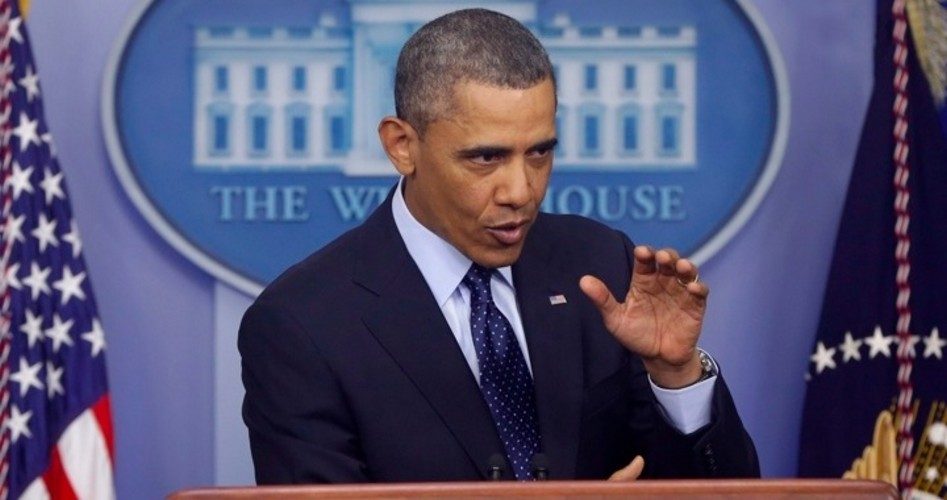
Despite failing to be adopted by consensus vote on last Thursday, the Arms Trade Treaty’s (ATT) civilian disarmament agenda marches on.
In an interview with The New American in advance of Thursday’s ill-fated final plenary session of the conference at UN headquarters deliberating the Arms Trade Treaty, a member of the U.S. delegation said the they were prepared to vote in favor of adoption of the gun grab.
They never got the chance, however, as Iran, Syria, and North Korea objected to the treaty, declaring it to be too favorable to the interests of the United States.
That point is debatable.
As I reported from the conference, the text of the treaty mandates several infringements on the right of people to keep and bear arms as protected by the Second Amendment to the Constitution.
For example, the Preamble of the Arms Trade Treaty points to the United Nations Charter as the source of guiding principles upon which the agreement is based. Citizens of the United States, however, recognize God as the source of all rights they enjoy. Not even the Constitution claims to be the giver of rights; it is merely the protector of them.
The ultimate American statement on the issue of the provenance of rights was written by Thomas Jefferson in the Declaration of Independence: “We hold these truths to be self-evident, that all men are created equal and are endowed by their Creator with certain unalienable rights, that among these are life, liberty, and the pursuit of happiness.”
The UN would see the Declaration of Independence replaced by the Declaration of Human Rights and would have the Creator replaced with government as the source of rights.
Take, for example, the principle of the ATT declaring the “inherent right of all States to individual or collective self-defence [sic] as recognized in Article 51 of the Charter of the United Nations.”
States have no “right of self-defense.” In fact, states have no rights at all. Men have rights and they may cede a portion of the protection of those rights to government. This is a provisional grant, revocable at the will of the people.
Ironically, moreover, it is in defense of tyranny of the government that individuals typically need to collectively exercise their natural right of self-defense.
Should those who govern ever exceed the boundaries drawn by the people around their power, the people retain the right — the natural right — of self-defense.
Furthermore, no document — not even the Constitution — grants rights. Rights are given by God and societies may draft constitutions in order to protect those rights from assault by government.
Again, the words of Thomas Jefferson pronounced in the Declaration of Independence establish the American position:
We hold these Truths to be self-evident, that all Men are created equal, that they are endowed, by their CREATOR, with certain unalienable Rights, that among these are Life, Liberty, and the Pursuit of Happiness. — That to secure these Rights, Governments are instituted among Men, deriving their just Powers from the Consent of the Governed, that whenever any Form of Government becomes destructive of these Ends, it is the Right of the People to alter or to abolish it, and to institute new Government, laying its Foundation on such Principles, and organizing its Powers in such Form, as to them shall seem most likely to effect their Safety and Happiness. [Emphasis in original]
Regardless of the promises of its advocates, the Arms Trade Treaty violates not only the Second Amendment, but also the American concept of the source of rights and the right of the people to defend themselves against the “long train of abuses” of any government.
President Obama will not be deterred, however. Not by the Declaration of Independence, not by the Second Amendment, and not by the failure of the ATT conference to adopt the treaty by consensus.
Peter Woolcott, president of the conference and ambassador from Australia, ordered the treaty sent to the Secretary General of the United Nations for presentation to the General Assembly for its approval.
The Obama administration is determined to make that happen.
During a phone conference held after the vote, the U.S. lead negotiator, Assistant Secretary of State Tom Countryman, reaffirmed the president’s support for implementation of the treaty.
“We look forward to this text being adopted by the United Nations General Assembly in the very near future,” Countryman said. “It’s important to the United States and the defense of our interests to insist on consensus. But every state in this process has always been conscious of the fact that, if consensus is not reached in this process, that there are other ways to adopt this treaty, including via a vote of the General Assembly.”
Later, Countryman predicted that barring any further alterations to the text, the General Assembly will vote on the gun control treaty within days.
Predicting that the president would take such a tack in order to accelerate his drive toward the absolute disarmament of civilians and the establishment of a government monopoly over all means of armed resistance, U.S. Senator Jerry Moran (R-Kan.) declared his intent to stand in defense of the right to keep and bear arms.
The most recent collapse of ATT negotiations should serve as a wake-up call to the world’s democracies of the inherent flaws in the U.N. treaty process that puts us on level ground with dictatorships who abuse human rights and arms terrorists.
In the coming weeks, I anticipate ATT supporters will seek new avenues for treaty adoption, such as the U.N. General Assembly. Given the apparent support of the Obama Administration for the ATT, members of the U.S. Senate must continue to make clear that any treaty that violates our Second Amendment freedoms will be an absolute nonstarter for ratification.
As The New American reported recently, Moran is the chief sponsor of a resolution, S. Con. Res. 7, that enjoys bipartisan support from 32 co-sponsors. Moran’s measure declares that it is the sense of Congress that “the President should not sign the Arms Trade Treaty, and that, if he transmits the treaty with his signature to the Senate, the Senate should not ratify the Arms Trade Treaty.”
Representative Mike Kelly (R-Pa.) has offered a companion measure in the House.
Both the Moran and Kelly resolutions declare that the Arms Trade Treaty “poses significant risks to the national security, foreign policy, and economic interests of the United States as well as to the constitutional rights of United States citizens and United States sovereignty.”
The measures also points out that UN gun grab “fails to expressly recognize the fundamental, individual right to keep and to bear arms and the individual right of personal self-defense, as well as the legitimacy of hunting, sports shooting, and other lawful activities pertaining to the private ownership of firearms and related materials, and thus risks infringing on freedoms protected by the Second Amendment.”
Others of Moran’s colleagues are riding to the defense of the right to keep and bear arms, as well.
On March 23, the Senate approved a measure sponsored by Jim Inhofe (R-Okla.) “to uphold Second Amendment rights and prevent the United States from entering into the United Nations Arms Trade Treaty.” By a vote of 53-46, the Senate passed Inhofe’s amendment to the budget bill.
While all these events auger positively for the future of the Second Amendment, Americans must remain vigilant. The treaty may still be approved by a majority of the UN General Assembly, and regardless of the outcome of that vote, President Obama is intent on executing its unconstitutional mandates, seizing control of all privately owned firearms and ammunition.
Photo of President Obama: AP Images
Joe A. Wolverton, II, J.D. is a correspondent for The New American and travels frequently nationwide speaking on topics of nullification, the NDAA, and the surveillance state. He can be reached at [email protected]
Related articles:
Global Gun Grab on Track Following UN Arms Trade Treaty Conference (Video)
Final Version of Arms Trade Treaty Released; Civilian Disarmament on Track
Gun Control Group Calls for Strict Control of Arms, Ammo in UN Treaty
“Bizarre Interpretation of Second Amendment” is Obstacle to UN Gun Grab
Senate Votes to Keep U.S. Out of UN Arms Trade Treaty
UN Arms Trade Treaty: National Lists of Gun Owners; Ammunition Regulation
UN Arms Trade Treaty, Day Two: Focus Is Transfer, Registry of Firearms
UN Arms Trade Conference Begins, Sec. General Calls for “Robust” Treaty



